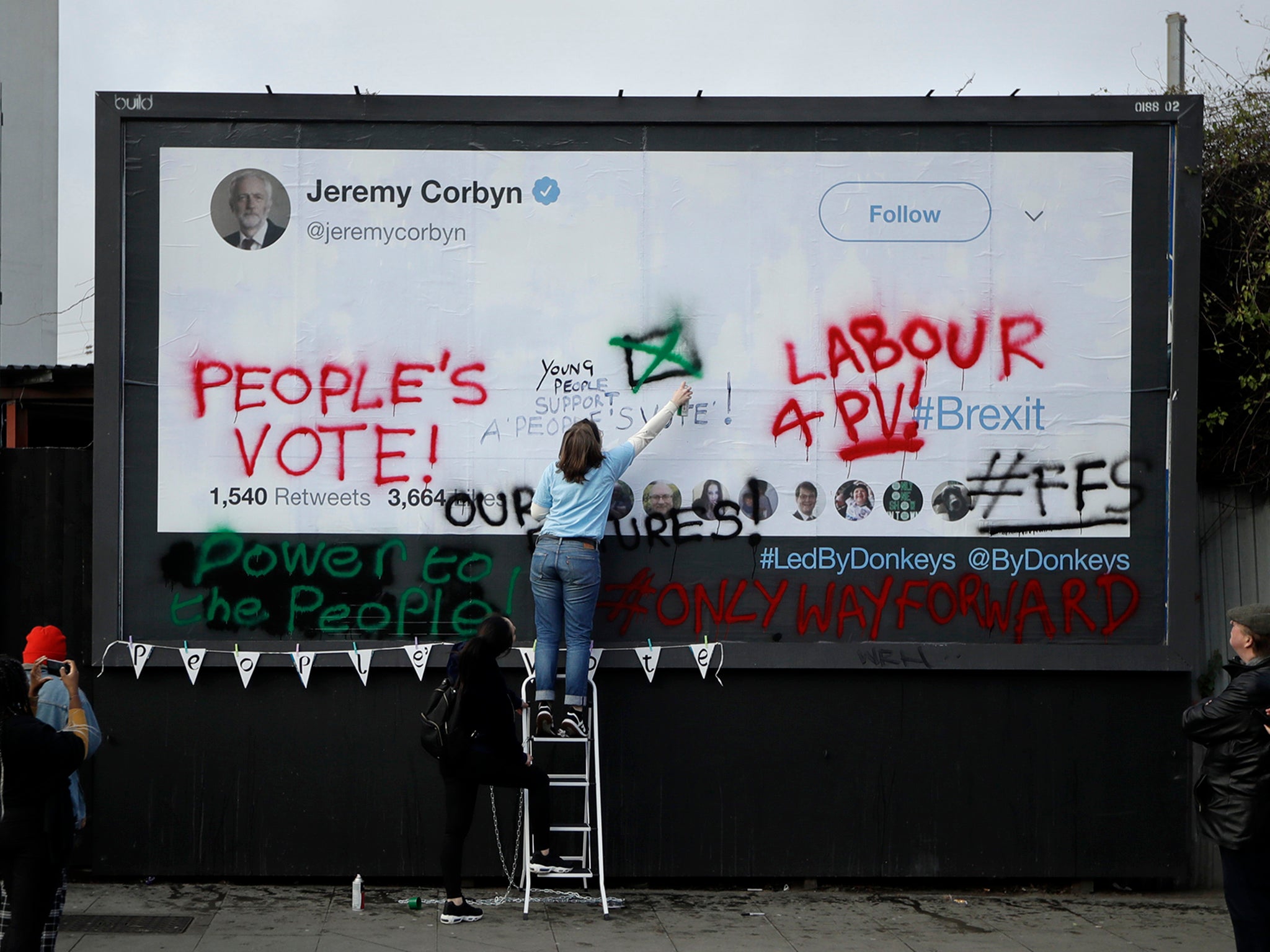Does the Labour split make a fresh referendum more likely?
Analysis: The rebel MPs were unwilling to go along with a referendum campaign that accepted the Labour leadership’s ambiguity over a new vote, as Joe Watts explains

The tears in Chris Leslie’s eyes as he announced his resignation from the Labour Party spoke to the severity of the split Westminster witnessed on Monday.
But while the rupture over antisemitism, Brexit and Jeremy Corbyn’s values is stark, the press conference also pointed to a major rift in another, younger movement.
It first became clear a couple of weeks back when Chuka Umunna and Luciana Berger held a press conference outside parliament castigating Mr Corbyn for failing to back a people’s vote.
That event annoyed several key people at the campaign’s headquarters who believe the only way they can ever win is to get Mr Corbyn on board.
The feeling on their side was that the rebel Labour MPs were letting their own internal party politics get in the way of achieving the ultimate goal of a second referendum.
The MPs, for their part, were apparently unwilling to go along with a referendum campaign that accepted the Labour leadership’s ambiguity over a new vote, in the hope that at the last minute Mr Corbyn might just finally back one.
Either way, it meant that at a critical opportunity on 29 January no motion for a second referendum was put before the Commons, in which there was likely no majority to pass it (which is not the same as there being no majority ultimately in favour of it).
But where does this now leave the movement for a new referendum, as backed by The Independent in its Final Say campaign.
It was noticeable that none of those who broke away from Labour on Monday mentioned the people’s vote campaign at their announcement, despite having been backers in the past.
Instead, they talked about their anger at the party’s failure to fight against Tory plans, the broken nature of British politics and the need for a new political movement in the centre ground.
This may reflect the fact that people’s vote HQ is also not pinning its hopes of achieving its goals on the breakaway group, and are instead quietly looking towards a plan being put forward by Labour MPs Peter Kyle and Phil Wilson.
That constitutes a compromise deal with Theresa May, offering to back her withdrawal agreement as long as it goes before the people in a new legally binding referendum. It is not the forthright position many campaigners hoped to be in at this stage in the Brexit process.
It is now not even clear if this more caveated approach to winning a new referendum, or a more direct one, will be put in front of MPs for a vote on 27 February – which is being hailed as “high noon” for the country’s approach to Brexit in other respects.
Last October when 700,000 people poured out on to the streets demanding a new referendum, the feeling was that momentum was swinging in their direction, that Jeremy Corbyn would ultimately have no choice but to back one and that, if it came to a vote in the Commons at the right time, MPs would push it through.
Since then all sides have become stuck in the bog of Brexit’s political complexity. Those wanting a Final Say will hope that the split in Labour’s ranks does not distract from that overriding aim, but rather focusses minds on a second referendum.
Got an unanswered question about Brexit? Send it to editor@independent.co.uk and we’ll do our best to supply an answer in our Brexit Explained series
Join our commenting forum
Join thought-provoking conversations, follow other Independent readers and see their replies
Comments